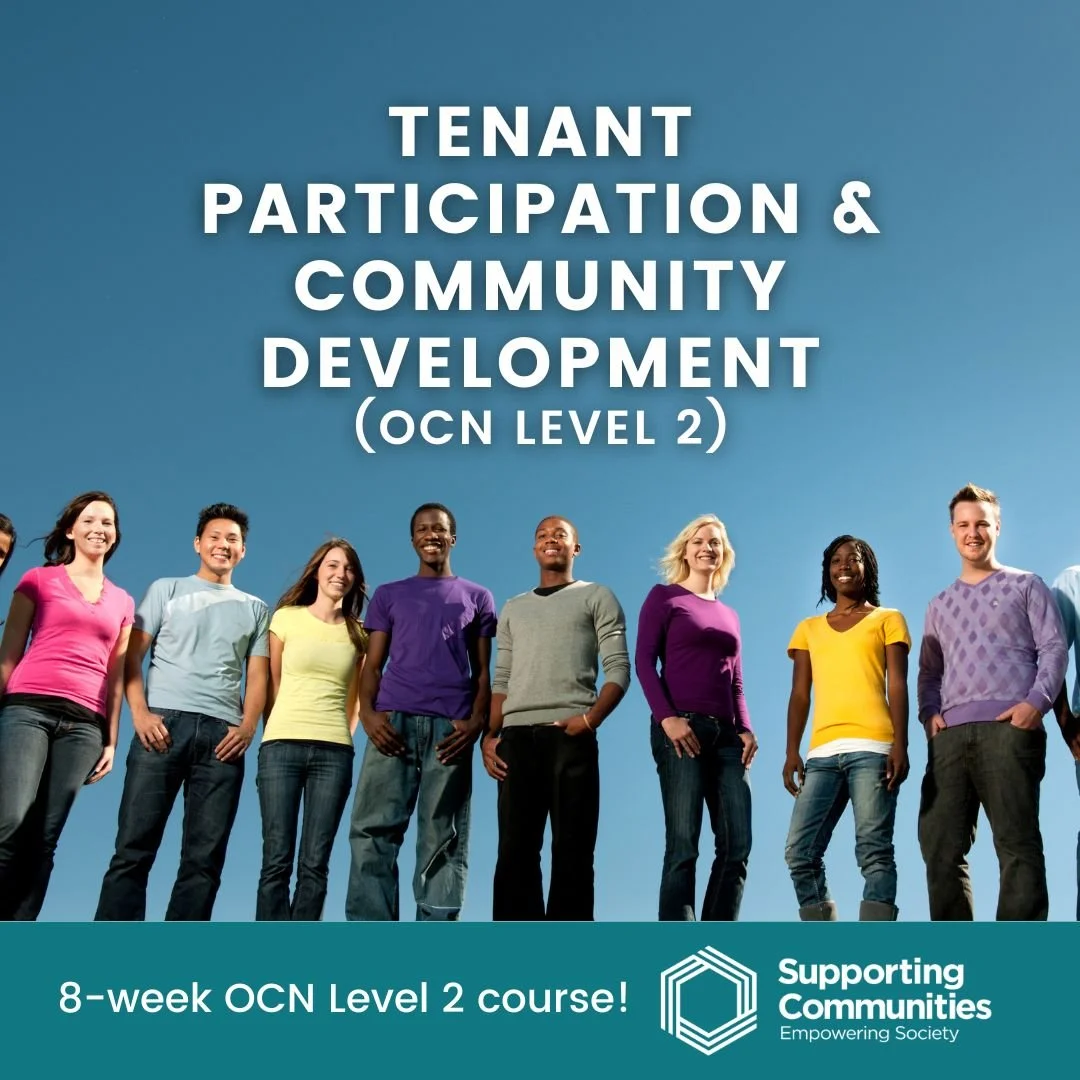Estate Inspections Go 'Virtual'
/Although we are restricted as to what we can do in person these days, at Supporting Communities, where there’s a will, there’s a way!
One of the essential services that we facilitate all over Northern Ireland is the estate inspection, or walkabout, to see what needs attention in an area. Supporting Communities helps community representatives connect with statutory agencies quickly and effectively to get things done. We know how things like illegal dumping and hazardous walkways can affect the quality of life in a neighbourhood, and walkabouts help us pick up those issues and direct them to the proper authority’s attention. We have developed a toolkit in partnership with the Housing Executive to progress actions from estate inspections. It’s simple, and it works, but we usually are there in person to use it!
Sarah Harkness Robinson, Senior Community Development Officer for the Lisburn and Castlereagh area, has piloted a form of ‘virtual walkabouts’ to show how we can continue to support communities even though we can’t be with them in person at this time.
“I asked an area volunteer do the walkabout on their own’, said Sarah. “They made notes and took photos of any issues they could see in the area, and then we filled in the toolkit together in a meeting online. Next, I reported the issues to the agencies, giving them a heads up on what was found. We then all met together to discuss actions to be taken or planned, and any further work we could do together to address the points raised. The pilot group has been very positive about the quick response from agencies. Agencies were happy to have our help identifying work since so much had been put on hold over the summer.”
The process worked because the group volunteers were willing, and everyone could attend the online meetings. Sarah has followed up with each issue to make sure all the actions from the meeting are progressing, and the residents can already see the benefits.
“I think the main thing is to make sure that the volunteers know what they are looking for on their inspection. An estate inspection can only ever be a snapshot of the estate at a particular date and time. It is designed to pick up issues that we can try and get action on, such as litter picks, dumped items lifted, etc. CDOs have a good knowledge of things like the Department of Infrastructure criteria for actionable defects such as potholes and the like. I had several phone conversations with the volunteers to make sure we were picking up the right sort of things and recording the right information in line with the criteria.”
Virtual inspections are not without their difficulties, but we are learning to overcome them as we adapt to doing things remotely. Sarah is working with volunteers to make sure they document area issues effectively through photographs.
“Including photographs in the toolkit can really help”, she said, “but you have to make sure they show the issues well. One group flagged up a crack in the pavement that didn’t look too bad in the picture at first - but then the volunteer was able to show the size of it by putting a 50p coin in the shot for scale! It definitely needed attention!”
Janine Freeman from the Hill Street Residents Group volunteered to complete one of these “virtual” estate inspections with Sarah. Janine was able to identify a range of issues around her estate, including broken and uneven pavements, and areas that pose an accessibility problem for elderly or disabled people. Work orders have already been raised for the footpaths and to install a new handrail. A couple of broken streetlights were also fixed immediately by the Dept of Infrastructure. Janine also flagged up several instances of dumping and untidy areas that the council addressed right away - something the residents have noticed and appreciated!
“It worked quite well,” said Janine. “I actually find that when you’re walking around with all the different agencies and representatives there, it can get a bit confusing with everyone discussing who’s going to do what. Doing it on Zoom with Sarah instead was really good! Nearly everything we have brought up has been addressed. For example, we are by the towpath, and we have had hotspots of people leaving their dog bags lying around. We got the council to put in four new bins to help, and it happened quite quickly. Residents are noticing and have said our committee is doing a great job!”
Janine hadn’t done much Zooming before, but after a quick test run with Sarah, she found it easy to use and a good way to hold meetings.
“I am really pleased with the way things have progressed. The Zoom meeting was really, really good. It worked so well, I think this might be the way we do things from now on!”, she said.
Sarah was quick to note that this estate inspection was a success because the group members had the digital skills and access to the equipment they needed to take and send pictures and to meet online.
“Groups that aren’t as digitally capable might struggle to be as effective in a virtual estate inspection process. We urge anyone who wants to gain the necessary digital skills to get in touch with our digital inclusion officer and take the first steps to get online!”
Until we can meet again in person, we will continue to find ways to support our HCN groups, get the important work done, and maintain the excellent working relationships we have with volunteers and statutory agencies across the country.
For help with digital skills, check out some of the opportunities coming up during Get Online Week or talk to Martin Quinn, Digital Inclusion Officer about doing some training.










